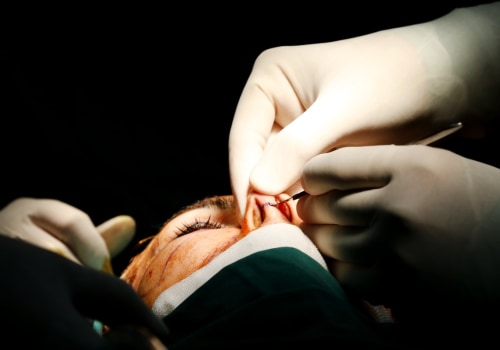Cosmetic surgery can be performed on all areas of the head, neck, and body to improve a person's appearance, self-esteem, and self-confidence. It includes surgical and non-surgical procedures that reshape body structures to enhance the look. Common cosmetic surgeries are breast augmentation, liposuction, nose reshaping, eyelid surgery, tummy tuck, and facelift. These procedures can be done anywhere on the face and body.
However, it is important to understand the risks and benefits of cosmetic surgery before undergoing any procedure. Cosmetic surgery is an elective procedure that is done to improve a person's appearance. It can be used to correct physical deformities caused by trauma or birth defects. It can also be used to enhance a person's features or to reduce signs of aging.
The goal of cosmetic surgery is to improve a person's appearance and self-confidence. The most common cosmetic surgeries are breast augmentation, liposuction, nose reshaping, eyelid surgery, tummy tuck, and facelift. Breast augmentation or enlargement (augmentation mammoplasty) is a popular procedure that increases the size of the breasts. Liposuction is used to remove excess fat from areas such as the abdomen, hips, thighs, and buttocks.
Nose reshaping (rhinoplasty) is used to change the shape of the nose. Eyelid surgery (blepharoplasty) is used to reduce wrinkles around the eyes. Tummy tuck (abdominoplasty) is used to remove excess skin and fat from the abdomen. Facelift (rhytidectomy) is used to reduce wrinkles and sagging skin on the face. Nonsurgical cosmetic procedures such as Botox and dermal fillers are also available for those who want to reduce wrinkles or fill in crease lines without undergoing surgery.
These procedures are generally less invasive than surgical procedures but still require a specialist surgeon trained in the procedure. Before undergoing any cosmetic procedure, it is important to understand the risks involved. Complications from cosmetic surgery can include infection, scarring, nerve damage, blood clots, and anesthesia reactions. It is also important to understand that cosmetic surgery does not guarantee perfect results; there may be some imperfections that cannot be corrected with surgery. The benefits of cosmetic surgery include improved appearance, increased self-confidence, improved physical function in some cases, and improved quality of life. Cosmetic surgery can also help correct physical deformities caused by trauma or birth defects. It is important to discuss all of your options with your doctor before deciding on any type of cosmetic procedure.
Your doctor will explain how cosmetic surgery can change your body and what you can expect as a result. They will also discuss any potential risks or complications associated with the procedure.







